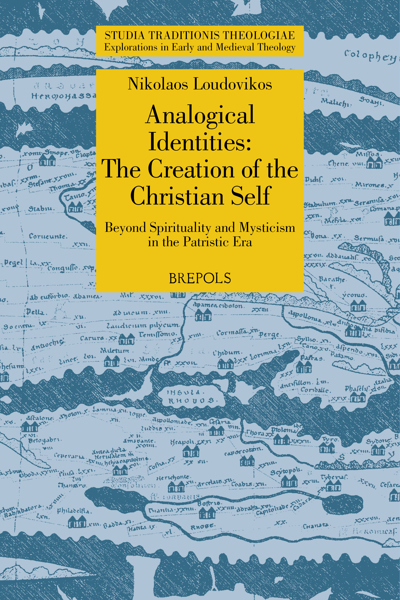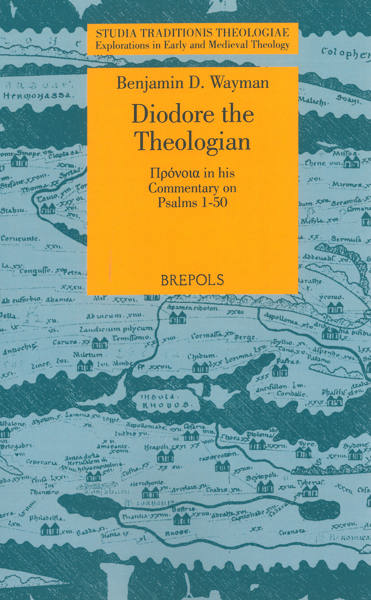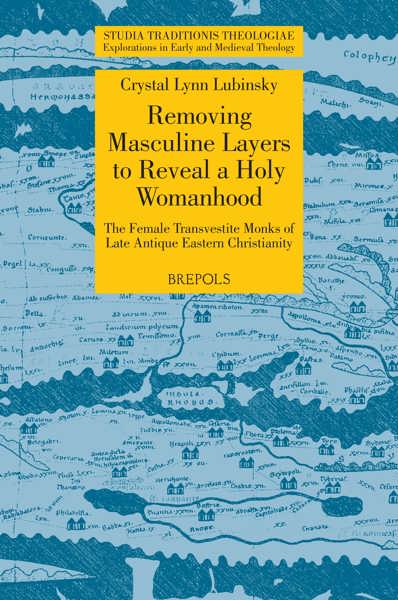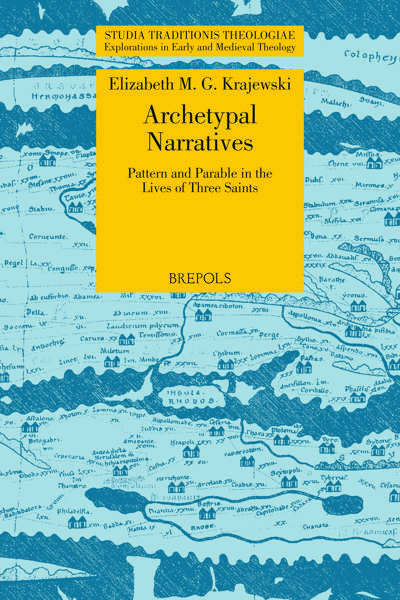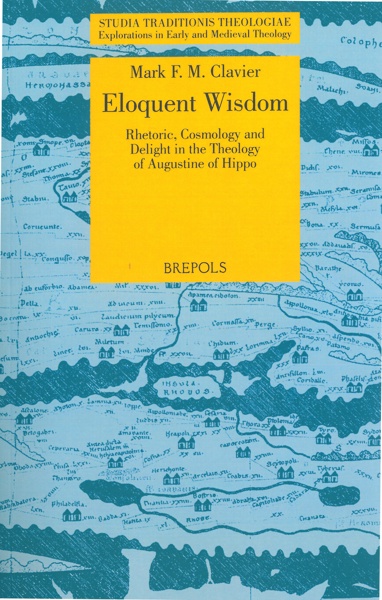
Analogical Identities: The Creation of the Christian Self
Volume 1: Beyond Spirituality and Mysticism in the Patristic Era
Nikolaos Loudovikos
- Pages: xvi + 386 p.
- Size:156 x 234 mm
- Language(s):English, Greek, Latin
- Publication Year:2020
- € 80,00 EXCL. VAT RETAIL PRICE
- ISBN: 978-2-503-57815-6
- Paperback
- Available
- € 80,00 EXCL. VAT RETAIL PRICE
- ISBN: 978-2-503-57816-3
- E-book
- Available
A book about the possibility of retrieving a concept of selfhood from Patristic theology, beyond the dichotomies of mind and body, or person and nature.
“The book is admirable for its scope, as Loudovikos deals with an impressive list of theological, philosophical and psychological authors.” (Michael C. Magree, in Scottish Journal of Theology, 74/4, 2021, p. 386)
“(…) book’s importance and relevance for the ongoing discussion of the Christian self.” (Nikolaos Aaproulis, in Journal of Orthodox Christian Studies, 4/2, 2021, p. 276)
Fr Nikolaos Loudovikos studied Psychology, Pedagogy, Theology and Philosophy at the Universities of Athens, Thessaloniki, Sorbonne (IV), Catholic Institute of Paris and Cambridge. He is a Professor of Dogmatics and Christian Philosophy at the University Ecclesiastical Academy of Thessaloniki, a Visiting Professor at the IOCS Cambridge, and a Research Fellow at the University of Winchester. He is the author of twelve books on Systematic or Philosophical Theology and numerous articles, translated in ten languages. He is the Senior Editor of Analogia: The Pemptousia Journal for Theological Studies.
Is it possible for nihilism and an ontology of personhood as will to power to be incubated in the womb of Christian Mysticism? Is it possible that the modern ontology of power, which constitutes the core of the Greek-Western metaphysics, has a theological grounding? Has Nietszche reversed Plato or, more likely, Augustine and Origen, re-fashioning in a secular framework the very essence of their ontology? Do we have any alternative Patristic anthropological sources of the Greek-Western Self, beyond what has been traditionally called "Spirituality" or "Mysticism"? Patristic theology seems to ultimately provide us with a different understanding of selfhood, beyond any Ancient or modern, Platonic or not, Transcendentalism. This book strives to decipher, retrieve, and re-embody the underlying mature Patristic concept of selfhood, beyond the dichotomies of mind and body, essence and existence, transcendence and immanence, inner and outer, conscious and unconscious, person and nature, freedom and necessity: the Analogical Identity of this Self needs to be explored.
Preface
Abbreviations
Introduction
PART ONE. THE MEANING OF SPIRITUAL BEING
Augustine and Origen: a study of the presuppositions of Western and Eastern spirituality, and some modern repercussions
Chapter One
Augustine, Origen, and the Person as Will to Power. The ontology of power
1. Representative eudemonism and the spirituality of the soul as thinking
2. A spiritualistic theory of knowledge. The violence of the spiritual and 'monophysitism'
3. Origen, following his parallel way
4. The thinking soul as light and the spirituality of the will to power
5. Knowledge of God through consciousness and the ontologization of the psychological
6. The genesis of the ontology of the person as will to power. The ontology of power and phenomenality
7. The will to power as a historical concern
PART TWO. ON WILL AND NATURE, ON PERSON AND CONSUBSTANTIALITY
Chapter One
Maximus the Confessor's Theology of the Will and the complete Selfhood
1. The limits of ancient will and the new opening
2. The theology of the will in the anti-monophysite anthropology of Maximus the Confessor
3. A theologico-philosophical appendix to this chapter: is it possible to transcend naturalism in the ontology of the person and of history?
Chapter Two
Symeon the New Theologian and the Eschatological Ontology of the Nature of Creation
1. History
2. The unfamiliarity of Being and melancholy
3. The familiarity of the Being through repentance as an eschatology of consubstantiality
4. Eucharistic Vigilance and Judgment: The Christology of Light
5. The embodied intellect and the poetics of matter. Joy
6. The Eschatological denial of the 'Spiritual' and Eucharistic Apophaticism
Chapter Three
The Neo-Platonic Root of Angst and the Theology of the Real
On being existence and contemplation, Plotinus-Aquinas-Palamas
1. The infinite, contemplation and angst
2. Deficient existence and the angst of its contemplation: Plotinus and Thomas Aquinas
3. The real as nature and vision of God. Saint Gregory Palamas
4. From the undermining of the real to its theology
Concluding Addition: The 'second Absolute' and the misreadings of Hesychasm
Nietzschean readings of Hesychasm?
Chapter Four
World and Existence, Nature and Person: The Being of Self and the Meaning of Its Consubstantial Universality
1. The Individual without the World. Epictetus
2. The World without the Individual. From Buddha to Schopenhauer
3. Individual and World, Person and Nature. Self and its Consubstantial Universality of its Being in Patristic Thought
a) On Consubstantiality, on the Person and on Nature
b) Beyond the Ontologization of the Person: the Meaning of Self
PART THREE. CONCLUDING DISCUSSION
Beyond Spirituality and Mysticism: The Poiesis/Creation of the Self as an Analogical Identity
1. Weighing Christian anthropological (Neo)Platonism in East and West
2. Medieval repercussions
3. Descartes' Augustinian happiness and beyond
4. The Will to Power and the Nietzschean Obelisk: an Autonomous Infinity
5. Objections, Wise and non-Wise: a Parenthesis
6. The Will to Consubstantiality: the Vessel in the Open Sea
7. The Heart of the Ocean: the Poiesis/Creation of a New Self
8. An Analogical Identity
Appendix 1: Person instead of Grace and Dictated Otherness: John Zizioulas's Final Theological Position
Appendix 2: Dialogical nature, Enousion Person, and Non-ecstatic Will in Maximus the Confessor: The Conclusion of a long Debate
Appendix 3: An Aquinas for the Future
BIBLIOGRAPHY
Ancient and Medieval Authors
Modern Authors
INDEXES
Index of Authors
Index of Modern Scholars
Index of Concepts
